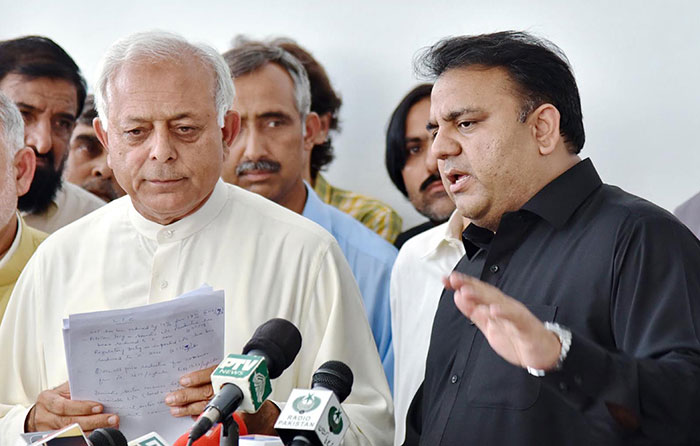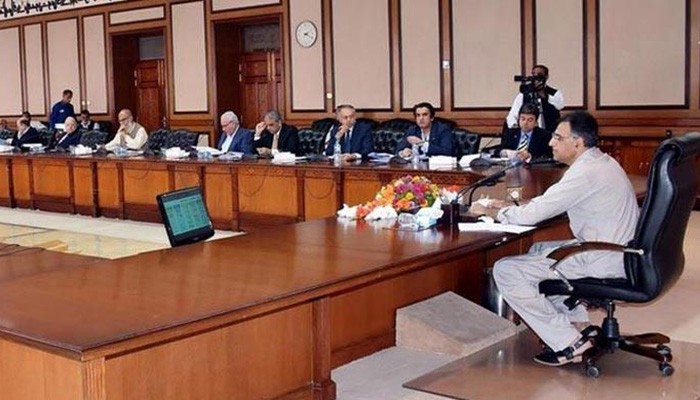The inevitable gas price hike
The rise in gas prices is not only bad news for the newly elected PTI government, but also equally worrying for commercial and residential consumers of gas.
September 18, 2018
Was the gas price hike inevitable? The simplest answer to this question is unfortunately a big 'yes'. This is, of course, bad news for the newly elected Pakistan Tehreek-e-Insaf government, which runs the risk of growing unpopular in its early days. It is equally worrying for the commercial and residential consumers of gas.
Recently, the Oil and Gas Regulatory Authority (OGRA) approved an increase in the per unit price of gas. The approval came at the heels of the two gas sector entities, Sui Southern Gas Company (SSGC) and Sui Northern Gas Pipelines Limited (SNGPL), coming under further financial stress. For SNGPL, the difference between sale and purchase prices has resulted in a loss of almost Rs.230 per unit. The receivables during the month of August this year stood at PKR 165 billion with payables at PKR 171 billion.
The Economic Coordination Committee (ECC), while discussing OGRAs recommendations, left the decision of 186% increase in the per unit price of gas to the Prime Minister. This meeting approved a 46% increase in the per unit price of gas. Later, owing to the pressure from select business lobbies as well as an anti-PTI campaign in social and electronic media, the government backtracked and the decision to increase gas prices was temporarily withdrawn.
This was not good news for those who understand the dynamics of the gas sector.
The withdrawal implied that the government would try finding resources to expand subsidy to the gas sector, so that the government shares the burden of cost with the consumer. But does the consumer know where does this subsidy come from?
It comes from taxing the citizens of Pakistan through some very regressive taxes. It can also come from borrowing more from the banking sector which leaves fewer funds to loan out for our small and medium enterprises. Finally, it can also come from printing money, which results in inflation. All three options unfortunately hurt the poorest of the poor relatively more than any other segment of the population.
Today, in a meeting chaired by Finance Minister Asad Umar, the ECC approved the hike in gas tariffs. The minister instructed the Committee to transfer minimal load possible to poor consumers. Despite the hike, the question remains; why is the political will to reform gas prices running on low? Yes, in theory it is best to allow market forces to determine gas prices, while keeping in place a targeted support for destitute consumers. The financial position of both SSGP and SNGP must also be strengthened over time. One can even agree to the proposal of linking the cost formula with international prices of fuel.
But then who is answerable for the inefficiency cost faced by the consumers owing to an outdated pricing formulae, delays expected while gas price reform is debated at the Council of Common Interests, missing real time data on gas wells and their production, weak improvements in regulatory processes and oversight, slow regulatory approvals on pending cases, and delayed action against gas sector companies not delivering as per their contractual obligations?

The consumers are also asking for an evaluation of Gas Utilization Priority Policy. If both SSGC and SNGPL were under financial pressure, why then did they continue to grant new gas connections? Data reveals that last year, unaccounted for gas (UFG) losses in the case of Balochistan stood around 51%.
However, there are other ways out. Research carried out by the Sustainable Development Policy Institute (SDPI) has proposed a five-pronged strategy.
First, all regulators in the energy sector currently operating independently must merge into a single entity. Regulatory authorities need to strengthen capacities in risk analysis and economic forecasting. No price hike should be considered by the ECC without a comprehensive consumer welfare incidence analysis. Currently, none of the entities proposing price hikes conducts an analysis of the extent to which the increase in energy prices will affect consumer welfare.
Second, Competition Commission of Pakistan (CCP) will need to play a more proactive role in promoting efficiency in the gas supply chain. Greater price competition should be allowed between exploration and production enterprises and government should not be the largest shareholder in SNGPL and SSGP. The exploitation of liquefied petroleum gas consumers also needs to be checked. CCP and the Oil and Gas Regulatory Authority (OGRA) can also demand faster unbundling of the transmission and distribution where a single transmission company with several distribution companies can be monitored against key performance indicators.
Third, a low tariff for non-poor household consumers has encouraged growth of small scale manufacturing in the informal sector. This must be corrected through both the removal of untargeted subsidy for consumers who can afford full economic price of gas and ensuring implementation of product standards, lack of which still allows use of inefficient gas appliances.
Fourth, the judicial processes that leave room for gas theft and maintain lengthy conviction procedures needs to be addressed. This will also require a coordinated effort between the federal and provincial government players in the gas sector.
Finally, while these measures can bring down the cost and prices faced in the gas sector, they need a longer time frame for implementation. For short term measures, the government can consider a system where lifeline and non-lifeline consumers of gas bear a differential loss and the latter pays proportionally higher percentage of loss, capacity charge, cross-subsidy and unit price of gas. Not raising prices is an option that is no longer on the table.
Dr. Vaqar Ahmed is joint executive director of the Sustainable Development Policy Institute, Pakistan. His book ‘Pakistan’s Agenda for Economic Reforms’ was recently published by the Oxford University Press. Twitter: @vaqarahmed













